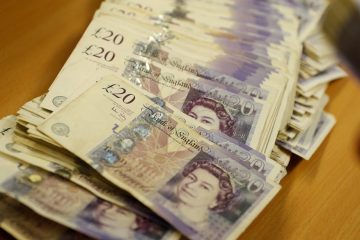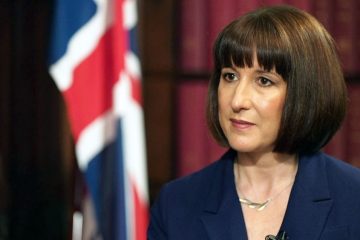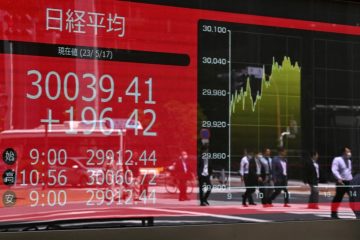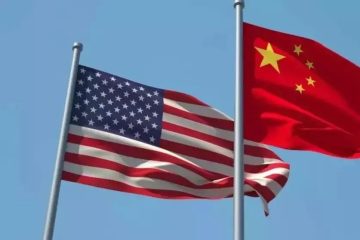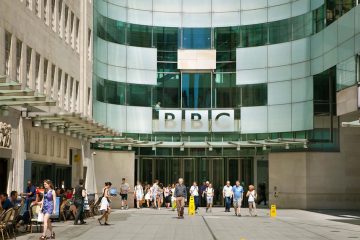| Symbol | Last | Change | % | High | Low |
|---|---|---|---|---|---|
| GBP / INR | 122.30 | -0.43 | -0.35% | 123.09 | 122.23 |
| Open Last Trade : 11:26 | GMT Time : Tue Mar 03 2026 11:26 | ||||
GBP/INR : Intraday Live Chart
GBP/INR : Technical Signal Buy & Sell
| 5 Min Signal | 1 Hour Signal | 1 Day Signal |
|---|---|---|
| Sell | Buy | Sell |
GBP/INR : Moving Averages
| Period | MA 20 | MA 50 | MA 100 |
|---|---|---|---|
| 5 Minutes | 122.40 | 122.49 | 122.70 |
| 1 Hour | 122.73 | 122.66 | 122.69 |
| 1 Day | 122.93 | 123.28 | 121.72 |
| 1 Week | 120.37 | 117.69 | 112.34 |
GBP/INR : Technical Resistance Level
| Resistance 1 - R1 | Resistance 2 - R2 | Resistance 3 - r3 |
|---|---|---|
| 122.75 | 122.74 | 122.76 |
GBP/INR : Technical Support Level
| Support 1 - S1 | Support 2 - S2 | Support 3 - S3 |
|---|---|---|
| 122.74 | 122.72 | 122.73 |
GBP/INR : Periodical High, Low & Average
| Period | High Change from Last | Low Change from Last | Average Change from Last |
|---|---|---|---|
| 1 Week | 123.35 -1.05 | 0.00 +122.30 | 122.72 -0.42 |
| 1 Month | 124.32 -2.03 | 0.00 +122.30 | 123.03 -0.73 |
| 3 Month | 127.27 -4.97 | 0.00 +122.30 | 122.19 +0.11 |
| 6 Month | 127.27 -4.97 | 0.00 +122.30 | 120.08 +2.22 |
| 1 Year | 127.27 -4.97 | 0.00 +122.30 | 117.00 +5.30 |
GBP/INR : Historical Chart
GBP to INR Exchange Rate History: Tracking Sterling’s Ride Against the Rupee
The GBP to INR exchange rate reflects the evolving financial and trade relationship between the United Kingdom and India. From the colonial-era legacy of pegged rates to today’s market-driven volatility, the pairing tells a story of divergence in inflation trends, central bank policies, and external sector pressures. For investors and businesses involved in UK-India trade, GBP/INR remains a critical indicator of macroeconomic balance.
1991–2000: Post-Liberalization Rupee Weakness
India’s 1991 economic liberalization fundamentally reshaped its currency dynamics:
In 1991, GBP/INR stood at around 25.
The Indian rupee moved from a fixed to a dual exchange rate system, and eventually to a managed float.
This shift, coupled with persistent high inflation, caused the rupee to weaken sharply through the 1990s:
By the year 2000, GBP/INR had crossed 65, marking a near tripling in under a decade.
The pound benefited from higher nominal interest rates and capital account openness in the UK.
2001–2008: India’s Growth Years and Relative Stability
The early 2000s were marked by a rapid acceleration in India’s GDP growth, driven by IT, services exports, and capital inflows.
Despite current account deficits, strong FDI and remittances helped the rupee.
GBP/INR hovered between 65 and 80, showing periods of resilience for the rupee.
However, global capital favored developed market currencies in uncertain times, keeping the pound relatively stronger during shocks like:
The 2004–05 oil price spikes and
The lead-up to the 2008 financial crisis.
By late 2008, GBP/INR was testing 80–85 levels again, driven by risk-off flows and UK rate cuts.
2009–2013: Post-Crisis Stimulus and INR Depreciation
Following the 2008 crisis, the UK and India both implemented monetary and fiscal stimulus packages:
The Bank of England’s quantitative easing and low interest rates led to pound weakness initially.
However, India’s ballooning fiscal deficit and inflation pressured the rupee more.
Between 2011 and 2013:
High crude oil prices worsened India’s trade deficit.
GBP/INR surged from 70 to 95, as investors pulled out of emerging markets amid taper talk from the US Federal Reserve.
India’s fragile macroeconomic indicators during this period led to intensified rupee depreciation.
2014–2019: Rupee Under Pressure Amid UK Political Volatility
As India pushed ahead with economic reforms post-2014, including GST, Make in India, and financial inclusion drives:
The rupee found relative support against major currencies.
However, Brexit developments introduced volatility to the GBP side of the equation.
From 2016 onward:
GBP fell sharply due to Brexit risks.
But INR also saw bouts of weakness due to oil prices and fiscal stress.
As a result, GBP/INR traded in a wide band between 85 and 96, ending the decade on the higher end of the spectrum.
2020–2024: COVID, Inflation, and Rate Cycles
The pandemic hit both the UK and India, but their recoveries diverged:
In 2020, the rupee briefly strengthened to below 95, thanks to high FII inflows into Indian equity markets.
From 2021 onward, inflation surged globally, and both the RBI and BoE began raising rates.
Key developments include:
The Bank of England’s aggressive hiking cycle, pushing GBP demand up.
India’s import bill pressures amid rising commodity prices.
By 2023 and early 2024, GBP/INR had crossed the 105 mark, reaching historical highs as the UK returned to higher rates while India faced trade imbalance concerns.
✅ Key
🟢 = GBP appreciated vs INR
❌ = GBP depreciated vs INR
⚠️ = Sideways / neutral trend
📊 GBP to INR Exchange Rate by Decade
| Decade | Avg. GBP/INR Rate (Approx) | Change vs. Previous Decade | Key Drivers |
|---|---|---|---|
| 1991–2000 | 25 → 65 | 🟢 GBP appreciated | India’s liberalization, high inflation, rupee depreciation |
| 2001–2008 | 65 – 80 | ⚠️ Stabilized | Indian GDP growth, capital inflows |
| 2009–2013 | 70 – 95 | 🟢 GBP appreciated | India’s inflation and twin deficits |
| 2014–2019 | 85 – 96 | ⚠️ Sideways | Brexit vs India reforms |
| 2020–2024 | 95 – 105+ | 🟢 GBP appreciated | BoE hikes, Indian trade imbalance, inflation differentials |
The GBP to INR exchange rate will continue to be influenced by India’s import-heavy economy, UK monetary policy, and global risk appetite. As the Bank of England maintains tighter policy, and the RBI balances growth vs inflation, this pair remains crucial for forex traders, remitters, and corporate hedgers alike.
GBP/INR - British Pound / Indian Rupee Currency Rate
Live Price of GBP/INR. GBP/INR Live Chart, Intraday & Historical Live Chart, Buy Sell Signal, GBP/INR News, GBP/INR Averages, Returns & Historical Data
» GBP/INR
» GBP/INR Real Time Quotes
» GBP/INR Live Chart
» GBP/INR Intraday Chart
» GBP/INR Historical Chart
» GBP/INR Buy Sell Signal
» GBP/INR News
» GBP/INR Videos
» GBP/INR Averages
» GBP/INR Currency Pair
» GBP/INR Historical Data

